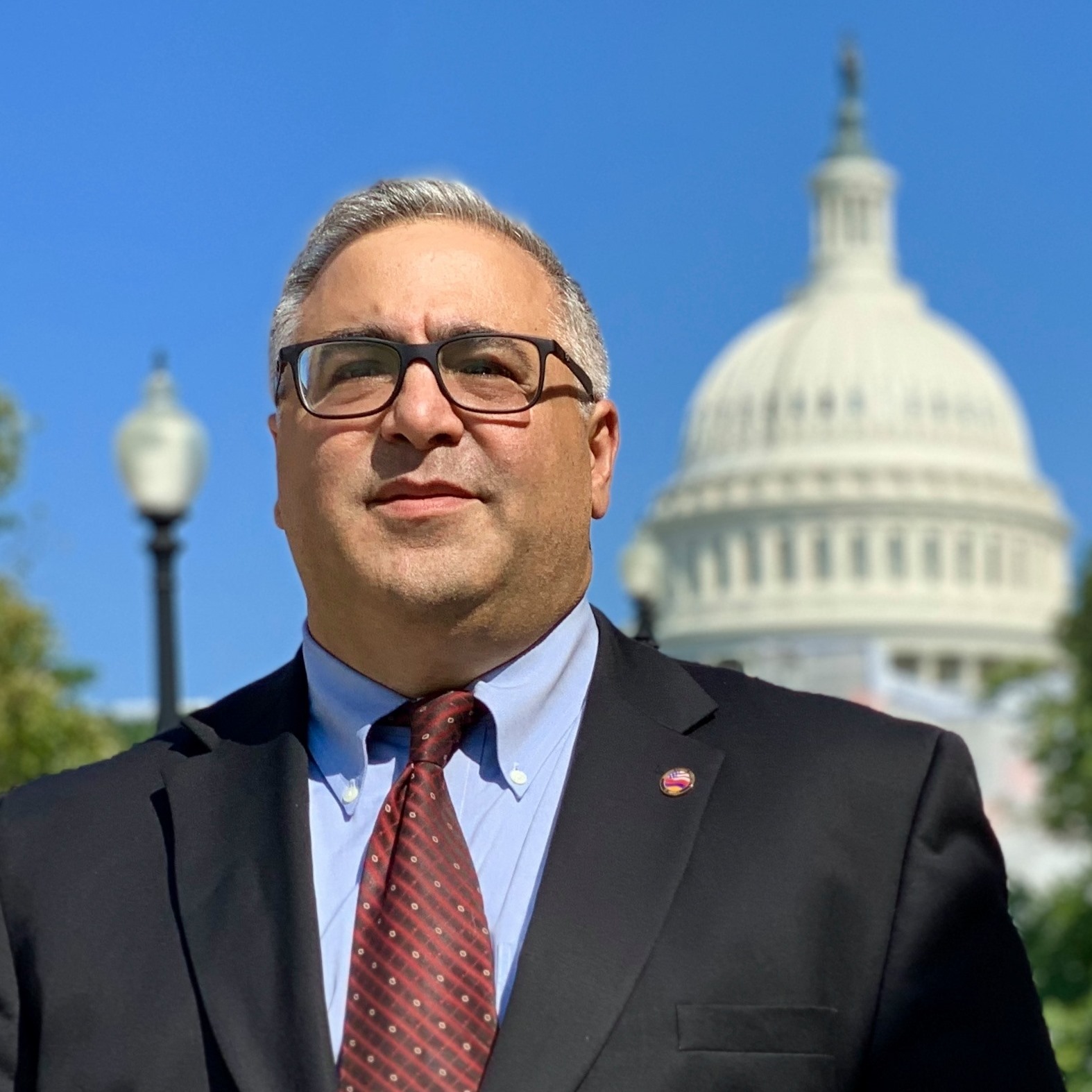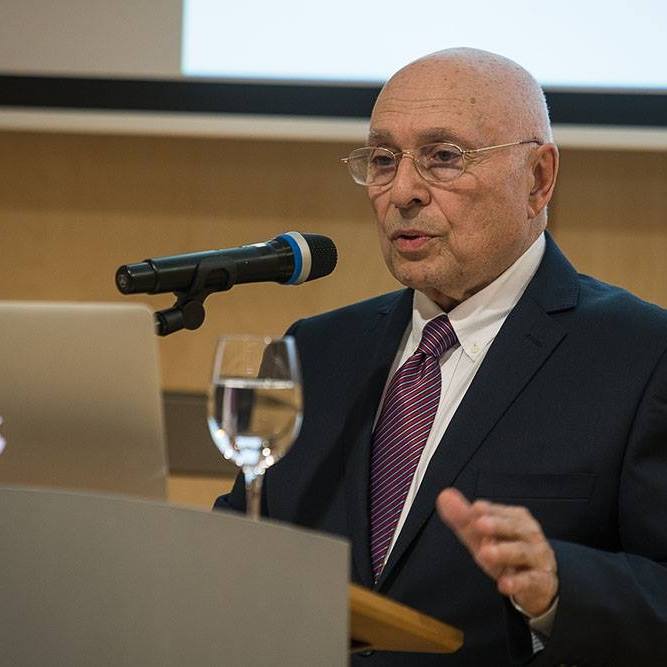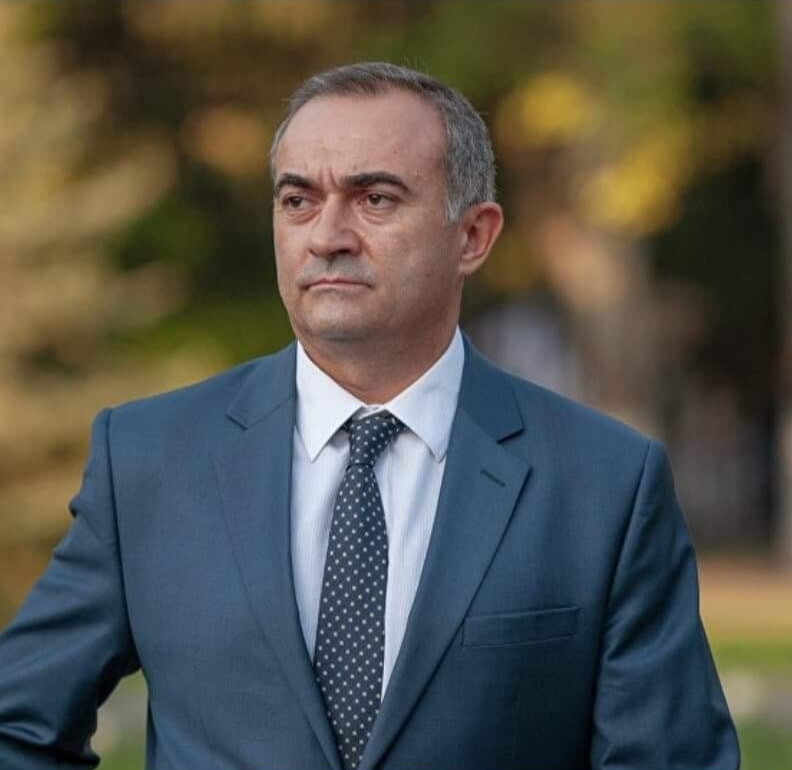US-Armenia Relations | Azerbaijan Maps | Azerbaijan Aggression and War Crimes | Ep 166 - Oct 2, 2022 [EP166]
Posted on Tuesday, Oct 4, 2022 | Series: WIR
Guest:
Topics:
- US-Armenia Relations
- Azerbaijan’s Maps and Claims
- Azerbaijan Continues to Occupy Armenia
- Internal Politics in Armenia
Episode 166 | Recorded: October 1 & 3, 2022
Show Notes
US - Armenia Relations
Segment with Aram Suren Hamparian (Recorded: 10/01/2022)
Over the past weeks, we have seen an unprecedented intensification of contacts Between Armenia and the West, specifically the United States. First, earlier in September, Suren Papikyan made a much-publicized trip to the States, even though at the time it seemed that the trip wasn’t very successful since he didn’t even manage to meet his counterpart, the Secretary of Defense.
However, since Azerbaijan’s brutal aggression on September 13 and the subsequent attack on Sep 28, there seems to have been an unprecedented diplomatic appetite from the West. First, we had a first time visit by speaker of the house Nancy Pelosi on September 22.
In the aftermath of September 13:
- There was a short conversation between Ararat Mirzoyan and Biden
- Pashinyan had long discussions with Blinken
- Armen Grigoryan visited the US
- He had negotiations with Jake Sullivan
- Ned Price: “importance of avoiding further violence and pursuing time-bound and focused negotiations” - Seems that the US has bought some time, but not unlimited?
- Davit Babayan (MFA of Artsakh) had meetings with members of the US congress
We had a surprise visit by Pashinyan to France to meet with Macron, followed by Papikyan visiting France as well. During Papikyan’s visit, France agreed to expedite sending a fact-finding delegation to evaluate the situation.
US Arms for Armenia?
Then we had somewhat of a surprise announcement from the organization that you chair, Aram. The ANCA tweeted that: “For the 1st time since the rebirth of Armenian independence in 1991, US policymakers - under sustained bipartisan Congressional pressure - are considering the sale of US arms to help #Armenia’s defense against #Azerbaijan’s relentless (Turkey-backed) aggression & ethnic-cleansing.”
This tweet got translated to a headline of: “U.S. considering selling arms to Armenia” by News.am.
- What discussions have you had with the legislative and executive branch to lead you to make this announcement? Is there something unprecedented and new that we should know?
- How realistic do you believe this proposal is? What are the conditions that you think may be presented to Armenia, if any sale of weapons is made? Is leaving CSTO, for instance, a condition?
- What are your thoughts on Armenia’s membership in the CSTO?
Congressional Resolutions
Over the past few weeks, there was also news about congressional resolutions related to the Azerbaijani aggression.
In the Senate, friend of Armenians Bob Menendez introduced a senate resolution demanding halting of US assistance to Azerbaijan. Specifically, the resolution calls on the president to make a determination on whether Azerbaijan should be subject to sanctions under the Global Magnitsky Human Rights Accountability Act.
In the House, a resolution condemning Azerbaijani aggression was introduced by Jackie Spier (CA-14) who recently accompanied Pelosi to Yerevan. Co-sponsors of that resolution are Congress people Frank Pallone (NJ-06), Adam Schiff (CA-28), and Anna Eshoo (CA-18). Specifically, point #7 states: “reaffirms its support of Armenia’s sovereignty and territorial integrity, as well as that of the Republic of Artsakh, against Azerbaijan’s military aggression and blatant violations of international laws and norms.”
- What is the significance of these resolutions and the likelihood of them passing?
- What’s the likelihood of the Biden administration sanctions against AZ based on the Senate resolution?
- Official recognition of Artsakh in the US House? Is this something new?
Azerbaijan’s Maps and Claims
Segment with Rouben Galichian (Recorded: 10/01/2022)
A number of developments have taken place in the past year, both in terms of de-facto changes on the ground and official statements from Armenian and Azerbaijani leaders.
In terms of physical control of territory, Azerbaijan’s aggression along the eastern border of 3 Armenian marzes has led to further encroachment into Armenia, threatening the resort town of Jermuk, which has been evacuated, as well as the major international highway linking Armenia with Iran. However, Ilham Aliyev on Sep. 21 claimed that Azerbaijan has prepared maps and delimitation must be carried out based on those maps.
The delimitation and demarcation process promises to be a very long and arduous one, since Aliyev has the upper hand and apparent control over the tempo of the process.
- You penned an article that was published in Asbarez, in response to Aliyev’s allegations. Aliyev claimed to have a map from 1844 showing an Azerbaijan between Georgia and Armenia. Where did that map originate and is it authentic?
- In other interviews, you have referred to a map published in 1926 in the Soviet Encyclopedia as the earliest map and the one on which delimitation should be based on. Can you tell us more about this map from 1926?
- Who did Karvachar (Kelbajar) belong to at the time?
- Were there any enclaves?
In his TV address on September 21 Pashinyan said that Armenia is ready to accept a peace treaty with Azerbaijan based on the fact that Armenia is 29,800 sq. kilometers or the territory that was assigned to Armenia before the breakup of the USSR. He repeated this claim in his address at the UNGA.
- What is the significance of this 29,800 number?
- What areas does it cover?
- Where does it leave the so-called “enclaves”?
Azerbaijani Occupation of Armenia Continues
Azerbaijan continues to occupy large swaths of territory inside Armenia and is now conducting fortification activities along the newly established line of contact. Many thousands of people who had been evacuated from Jermuk and other populated areas close to the zone of the hostilities are not going back. In fact, entry to Jermuk and other areas is by military permission only.
The latest official casualty count exceeds 207 but hasn’t been updated in nearly 2 weeks. Foreign embassies have put up travel warnings to Southern and Eastern Armenian territories.
Azerbaijan 9/28 attack
Just last week, Azerbaijan continued its military brinkmanship and on September 28 attacked an Armenian position with heavy caliber weapons. As a result,** three Armenian servicemen were killed**.
Our condolences to the families and loved ones of Lt Col Nahapet Margaryan, Sgt Hovhannes Sukyasyan and Pvt Edvard Hovhannisyan. Eternal glory to all Armenian heroes.
As confirmed by Pashinyan the Armenian side was conducting engineering activities in order to fortify its positions after retreating on 9/13. This was seen as a provocation by Azerbaijan despite entrenchment work by Azerbaijan itself in the newly acquired positions well inside Armenia, visible even from space.
- Why is Azerbaijan able to get away with such brazen attacks?
- What goals did they have when attacking and did they achieve them?
Peace Treaty: Ceding of Artsakh and Enclaves
At the same time Azerbaijan appears to be using its military gains to exact further concessions from Pashinyan’s de-facto regime. Armenian officials were quick to blame Russia and CSTO for their troubles, despite continuing a submissive behavior.
Following the Sep 12-13 aggression, Pashinyan and Aliyev began a series of public announcements and interviews.
However, as the days progressed, Pashinyan’s current position seemed to be further clarified. First, Pashinyan in different circumstances, including the UN, Pashinyan is saying that Armenia is ready to accept a peace treaty with Azerbaijan based on the fact that Armenia is 29,800 sq. kilometers or the territory that was assigned to Armenia before the breakup of the USSR. Also, in the latest interview he gave to H1, Pashinyan says “Karabakh may not be mentioned in the peace agreement with Azerbaijan”.
- Analysts on our show have warned about this, but what are the risks you see from these positions that are now officially public record?
- What about the enclaves?
In fact, leaving Artsakh to its own fate is already in the process officially.
Arayik Harutyunyan mentioned something about it in a televised speech
Pashinyan in Paris said: “I think the start of Azerbaijan-Nagorno Karabakh discussions can be useful. In this context, I must emphasize the role of France as an OSCE Co-chair country.”
How is Stepanakert going to fend for itself? Why is Armenia formally relinquishing its role in the OSCE Minsk group?
Public Spat with Russia and the CSTO
The Azerbaijani attack was accompanied by more public accusations against Russia and the CSTO. Pashinyan and his team sometimes openly and sometimes less so have accused Russia and CSTO not only of not adequately reacting to Armenia’s request for assistance, but went further to say that Armenia has problems procuring weapons from its allies.
For instance, Gagik Melkoyan, a Civil Contract delegate of the national assembly complained explicitly that: “since the end of the 2020 war to this day, Russia has not sold us a single weapon.” We know at least based on public domain information that this is incorrect since there was a public show of new helicopter acquisitions by the ministry of defense.
More recently, in a weird sequence of announcements, Pashinyan openly accused Armenia’s “allies” of being influenced by Azerbaijan to not sell Armenia weapons, despite paying hundreds of millions of dollars in deposits. The media began speculating and the most likely candidate for the blame was Armenia’s only strategic ally Russia. Public criticism of Russia intensified.
Then, the ministry of defense on Friday denied that arms shipments from Russia to Armenia have stopped and said that weapons deliveries are happening based on signed contracts and schedules. Following that, in his H1 interview, Pashinyan himself seems to have backtracked and said that he didn’t explicitly name Russia by name.
- What sense can be made of this public blame game? Is Russia really influenced by an Azerbaijani ban on weapons sales?
The Azerbaijani attack was accompanied by more public accusations against Russia and the CSTO. Pashinyan and his team sometimes openly have accused Russia and CSTO of inadequately reacting to Armenia’s request for assistance.
The public fight with Russia and CSTO didn’t end with just weapons acquisition. After the CSTO’s lack of commitment to send troops to Armenia - something which doesn’t surprise us - Pashinyan has been openly critical of the organization, stopping short of saying that Armenia should leave the CSTO. That message of course was still spread unofficially yet vocally.
In an apparent slight to the organization, Armenia skipped the CSTO drills in Kazakhstan last week. And in his speech on 9/29, Pashinyan said international peacekeeper forces on the border between Armenia and Azerbaijan are an “absolute necessity”. This was after his visit to France and following his announcement, France said it supports the idea of sending international monitors to Armenia.
- What is the prospect of having non-CSTO troops on the Armenian border with Azerbaijan?
- Can this be done unilaterally, without Azerbaijan’s agreement?
Internal Politics
Meeting of the 3 Presidents
For weeks there were rumors that the Catholicos of All Armenians was trying to facilitate meetings with the 3 former presidents (Ter-Petrosyan, Kocharyan, and Sargsyan) as well as 2 former presidents of Artsakh. Eventually, the presidents finally met, however the announcement after their meetings was very short, simply that they agreed to meet again.
The Levon Ter-Petrosyan interview
- Calls it a capitulation but says that we must sign it.
- Urged all political forces to unite behind Pashinyan and collectively take ownership of signing it.
Robert Kocharyan on capitulation (from his press conference)
- In reference to LTP’s call, said that capitulation doesn’t require consolidation. Consolidation is required to prepare the population for victory.
- Capitulation can’t serve as the basis for peace. Instead, it will have the opposite effect.
Question:
- Despite the obvious disagreements, the presidents seem to have signaled that they’re willing to talk further. What does this mean?
Wrap-up
We hope you found our Week in Review helpful. We invite your feedback and your suggestions, you can find us on most social media and podcast platforms. Thanks to Laura Osborn for the music on our podcasts.
Guests

Aram Suren Hamparian
Aram Suren Hamparian is the Executive Director of the Armenian National Committee of America, in Washington DC.

Rouben Galichian
Rouben Galichian is an author and specialist of Armenia’s maps and borders through 2600 years of history. His works can be found on roubengalichian.com.

Tevan Poghosyan
Tevan Poghosyan is president of the International Center for Human Development. Mr. Poghosyan was an MP in the National Assembly between 2012 and 2017 from the Heritage party. From 1997 to 1999 he served as the Nagorno-Karabakh Public Affairs Office Director in Washington, D.C.
Hosts

Hovik Manucharyan
Hovik Manucharyan is an information security engineer who moved from Seattle to Armenia in 2022. He co-founded the ANN/Groong podcast in 2020 and has been a contributor to Groong News since the late 1990s.
Disclaimer: The views expressed by Hovik Manucharyan on the ANN/Groong podcast are his own and do not necessarily reflect the opinions of his employer or any other organization.

Asbed Bedrossian
Asbed Bedrossian is an IT professional, and for years oversaw the central IT enterprise infrastructure and services at USC. His decades of experience spanned across IT strategy, enterprise architecture, infrastructure, cybersecurity, enterprise applications, data center operations, high performance computing, ITSM, ITPM, and more.
Asbed founded the Armenian News Network Groong circa 1989/1990, and co-founded the ANN/Groong podcast in 2020.